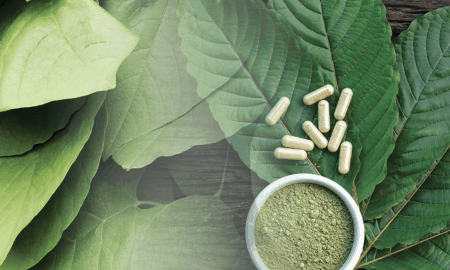
Do you often feel overwhelmed by stress and its physical effects? Have you considered using supplements as a strategy to manage your stress hormones? This article explores how various supplements can significantly help reduce cortisol levels, offering a more balanced and healthier lifestyle.
Understanding Cortisol and Its Effects
Cortisol, the stress hormone, is crucial for survival but becomes problematic when levels remain high over time. Chronic high cortisol can lead to significant health issues such as weight gain, insomnia, and chronic fatigue. Elevated cortisol affects not just physical health but also mental well-being, contributing to anxiety and depression. Understanding how to reduce cortisol levels with supplements is a practical approach to managing these symptoms effectively. Lowering cortisol improves your health and enhances your ability to cope with daily stress.
The Role of Adaptogens in Cortisol Reduction
Adaptogens such as ashwagandha, Rhodiola rosea, and ginseng help your body resist physical, chemical, or biological stressors. These herbs are known for balancing cortisol levels and stabilizing your body’s stress response. Adaptogens help maintain mental balance and prevent burnout by reducing the overall secretion of cortisol. Adaptogens also support overall vitality and energy levels, which can be depleted by chronic stress. Incorporating adaptogens into your regimen can be a cornerstone in stress management and cortisol control.
Omega-3 Fatty Acids: Anti-Inflammatory Powerhouses
Omega-3 fatty acids, essential for brain health and reducing inflammation, also play a crucial role in lowering cortisol levels. These fatty acids, found abundantly in fish oil and flax seeds, help modulate the body’s response to stress, preventing excessive cortisol production. By fighting inflammation, omega-3s ensure the body’s stress responses are not overactivated. Regular consumption of omega-3 supplements can also improve cardiovascular health and cognitive function, which are often compromised by high stress and cortisol levels.
Magnesium: The Calming Mineral
Magnesium reduces cortisol production by calming the nervous system. This essential mineral is also crucial for improving sleep quality, which can further reduce cortisol levels. As a natural relaxant, magnesium helps alleviate stress symptoms such as muscle tension and irritability. It plays a critical role in over 300 enzymatic reactions in the body, many of which can be negatively affected by stress and cortisol. Ensuring adequate magnesium intake can thus support overall health and resilience to stress.
Vitamin C: More Than Just Immune Support
Vitamin C lowers cortisol levels and buffers the body’s response to stress, making it a potent aid during stressful times. It supports adrenal function, which is crucial during high-stress periods, helping to quickly reduce cortisol spikes. This vitamin also aids in the recovery of the body’s systems post-stress, ensuring a quicker return to baseline cortisol levels. Additionally, Vitamin C’s antioxidant properties help fight the oxidative stress that can be exacerbated by high cortisol.
Phosphatidylserine: A Brain Health Booster
Phosphatidylserine decreases cortisol levels induced by stress and supports overall cognitive function. This phospholipid helps protect brain cells and improves the transmission of messages between them. By maintaining cellular health in the brain, phosphatidylserine can mitigate the adverse effects of excessive cortisol on mental functions. It is particularly beneficial for those who experience cognitive decline associated with high stress levels.
B Vitamins: Essential for Energy and Well-being
B vitamins, particularly vitamins B5, B6, and B12, are vital for mood regulation and stress management. These nutrients help the body produce neurotransmitters such as serotonin and dopamine, which stress depletes. By aiding the nervous system, B vitamins can reduce symptoms associated with high cortisol, such as energy depletion and emotional instability. Their role in cellular metabolism also helps enhance energy and resilience.
L-Theanine: Promoting Relaxation Without Sedation
L-Theanine, found mainly in green tea, promotes relaxation without causing drowsiness. This amino acid reduces physiological and psychological stress responses, lowering cortisol levels. It enhances feelings of calm and focus, which can be particularly helpful in managing stress effectively. L-theanine is an excellent supplement for those seeking stress relief without the sedative effects often associated with other calming agents.
Probiotics: Supporting Gut Health and Stress Reduction
Probiotics maintain a healthy gut microbiota, crucial for overall health and effective in managing stress. A balanced gut can improve communication between the gut and brain, reducing the body’s stress response and cortisol levels. By enhancing gut health, probiotics support digestive function and emotional well-being. They are particularly beneficial for those with stress-related gastrointestinal issues.
Prebiotics: Fueling the Beneficial Gut Bacteria
Prebiotics nourish the beneficial bacteria in the gut, essential for maintaining balance and reducing stress responses. By improving gut health, prebiotics help enhance gut-brain axis communication, lowering cortisol levels and reducing stress. They contribute to a healthier intestinal environment, directly linked to improved mental health and stress resilience.
Conclusion
Understanding the roles of various supplements in reducing cortisol levels is crucial for effective stress management. Incorporating these supplements into your daily routine and a healthy lifestyle can significantly lower cortisol levels and improve your overall well-being. Always consult a healthcare professional before starting any new supplement regimen to ensure they suit your specific health needs. With the right approach, you can achieve a balanced state of health and improve your quality of life by effectively managing your cortisol levels.

















Follow Us